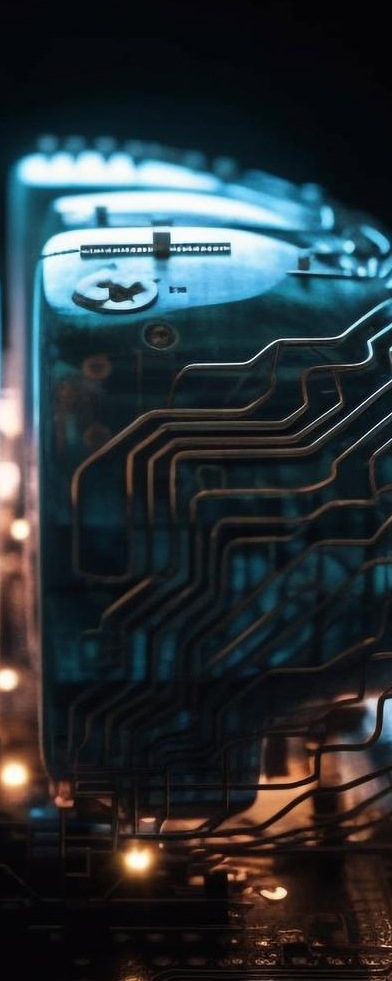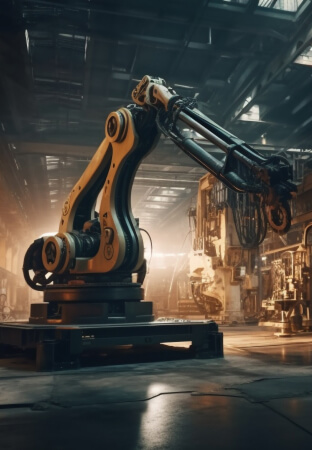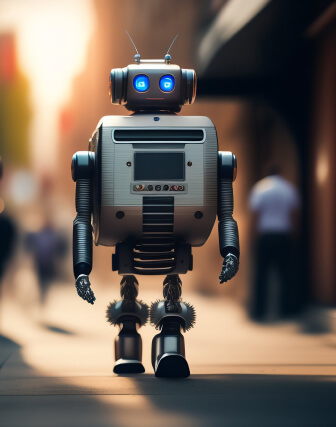Unveiling BIONETICA: The Synergy of Biology, Genetics, and Cybernetics in Artificial Intelligence Paradigms
Key Concepts in BIONETICA: Exploring the Confluence of Biology, Genetics, and Cybernetics in A.I.
The Genesis of BIONETICA
Origins in the Merge of "Bionica Genetica" or "Biologia Cibernetica": Bionetica emerges from the convergence of the italian terms "bionica genetica" and "biologia cibernetica," signifying the amalgamation of principles from biology, genetics, and cybernetics. Interdisciplinary Synergy: This interdisciplinary approach blends insights from these fields to craft AI systems infused with the essence of biological and cybernetic principles.
The potential of BIONETICA in A.I.
Inspired by Nature: Bionetica draws inspiration from both biological and cybernetic concepts, setting the stage for the development of AI systems that mirror nature's elegance. A Powerful Paradigm: This fusion holds the potential to usher in a new paradigm for the creation of advanced AI and intelligent systems, capable of innovation and adaptability across diverse domains.

About BIONETICA:
The future, but now
BIONETICA, is dedicated to pioneering sustainable solutions through technology and nature-inspired wisdom. Our mission is to create an eco-conscious future by integrating AI, robotics, and automation while respecting the environment.
Inspired by Nature
We draw inspiration from nature's efficiency and adaptability to guide our research and development. Our solutions prioritize sustainability, efficiency, and responsible technology use.
Collaboration and Innovation
We believe in collaborative innovation. BIONETICA partners with like-minded organizations and individuals to explore new frontiers and create a greener, tech-powered world.
Join Us
Whether you're a business seeking sustainable solutions, a researcher pushing AI boundaries, or an advocate for a greener planet, BIONETICA welcomes you to shape a brighter, sustainable future. Welcome to BIONETICA, where technology meets nature for a better tomorrow.

10+
Years of Experience
Superintelligent AI (ASI) and Evolutionary Algorithms First time together

Bionetica's integration with ASI and Evolutionary Algorithms provides a holistic and nature-inspired approach to AI development.
It offers the potential to create highly adaptable, ethically sound, and innovative AI systems that are capable of addressing complex challenges in ways that draw inspiration from the natural world.
However, it also necessitates careful ethical considerations and interdisciplinary cooperation to ensure that the convergence is used responsibly and to its full potential.
Contact Us10+
Patents in development100+
EU challenges we have been inBIONETICA FAQs
AI and robotics are utilized in numerous fields, including healthcare, autonomous vehicles, manufacturing, finance, customer service, NLP, recommendation systems, gaming, agriculture, space exploration, environmental monitoring, education, security, energy management, and humanoid robots.
Artificial Intelligence (AI) refers to computer systems that can perform tasks requiring human-like intelligence, such as problem-solving, learning, and decision-making. It comes in two main forms: narrow AI (task-specific) and general AI (human-like). AI technologies are used across industries to automate tasks and make data-driven decisions.
Robotics is the field of engineering and technology that deals with the design, construction, operation, and use of robots. Robots are machines or devices that can be programmed to perform tasks autonomously or with human control. They are often used in various industries to automate repetitive or dangerous tasks, and they can be found in manufacturing, healthcare, space exploration, and more. Robotics combines elements of mechanical engineering, electronics, and computer science to create and operate these intelligent machines.
Artificial Intelligence (AI) is the field focused on creating computer systems that can mimic human intelligence and perform tasks like problem-solving and decision-making. Robotics, on the other hand, is a branch of engineering and technology that deals with the design and construction of physical machines (robots) capable of performing various tasks, often with the help of AI. While AI is the brains behind intelligent software, robotics involves the physical embodiment and interaction of machines in the real world.
AI types include Narrow AI for specific tasks, General AI for broad problem-solving (theoretical), and ASI for surpassing human intelligence. Also, Machine Learning learns from data to make predictions, Deep Learning uses neural networks with multiple layers, Reinforcement Learning trains agents to make sequential decisions, Natural Language Processing understands and generates human language, Computer Vision analyzes visual data, Expert Systems mimic human expertise, Fuzzy Logic deals with uncertain data, and Evolutionary Algorithms use biological evolution for optimization.



